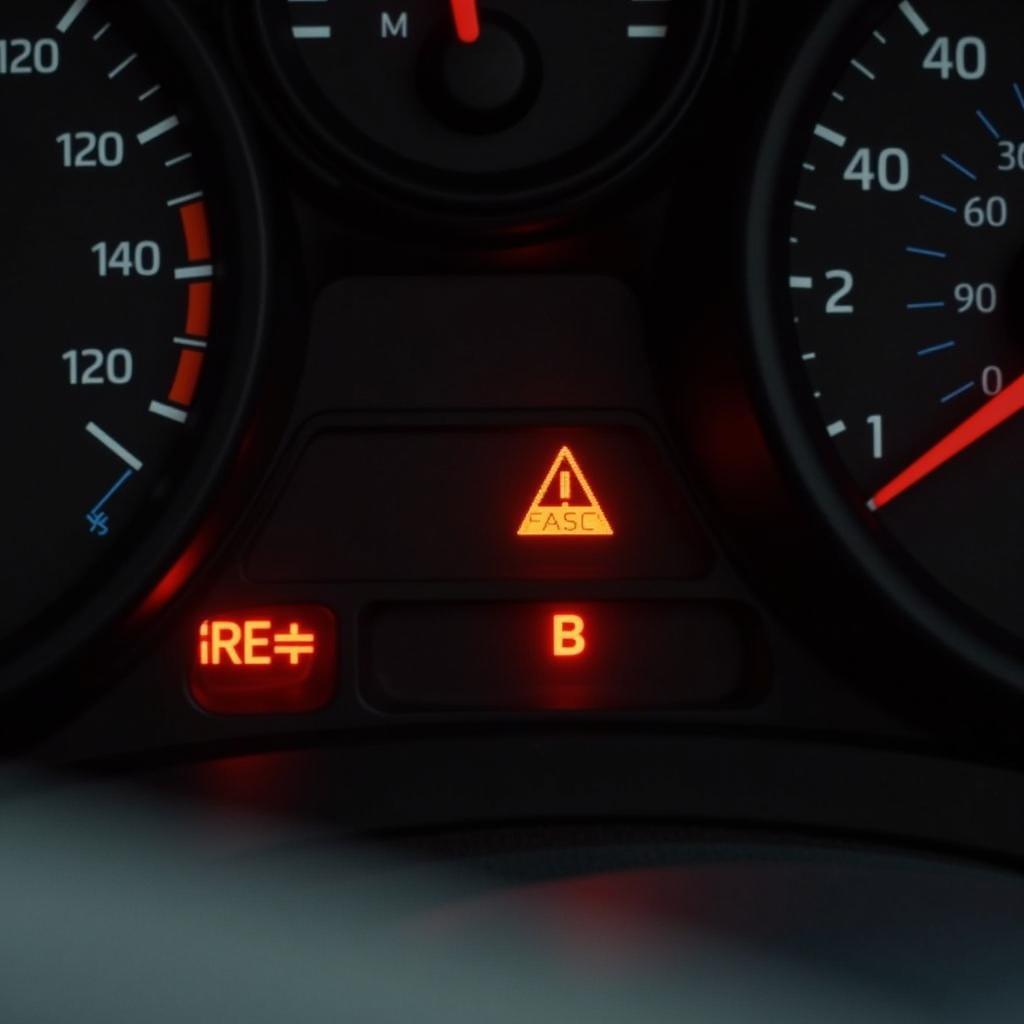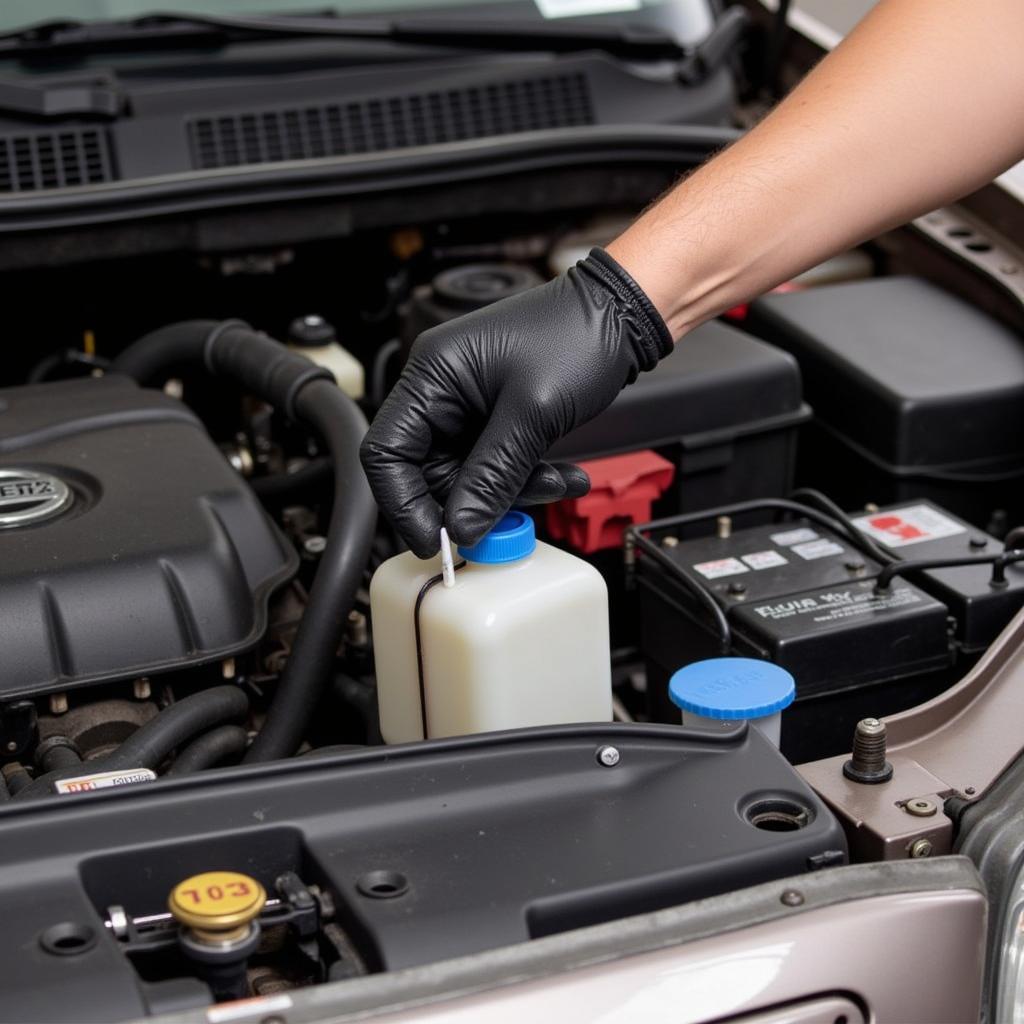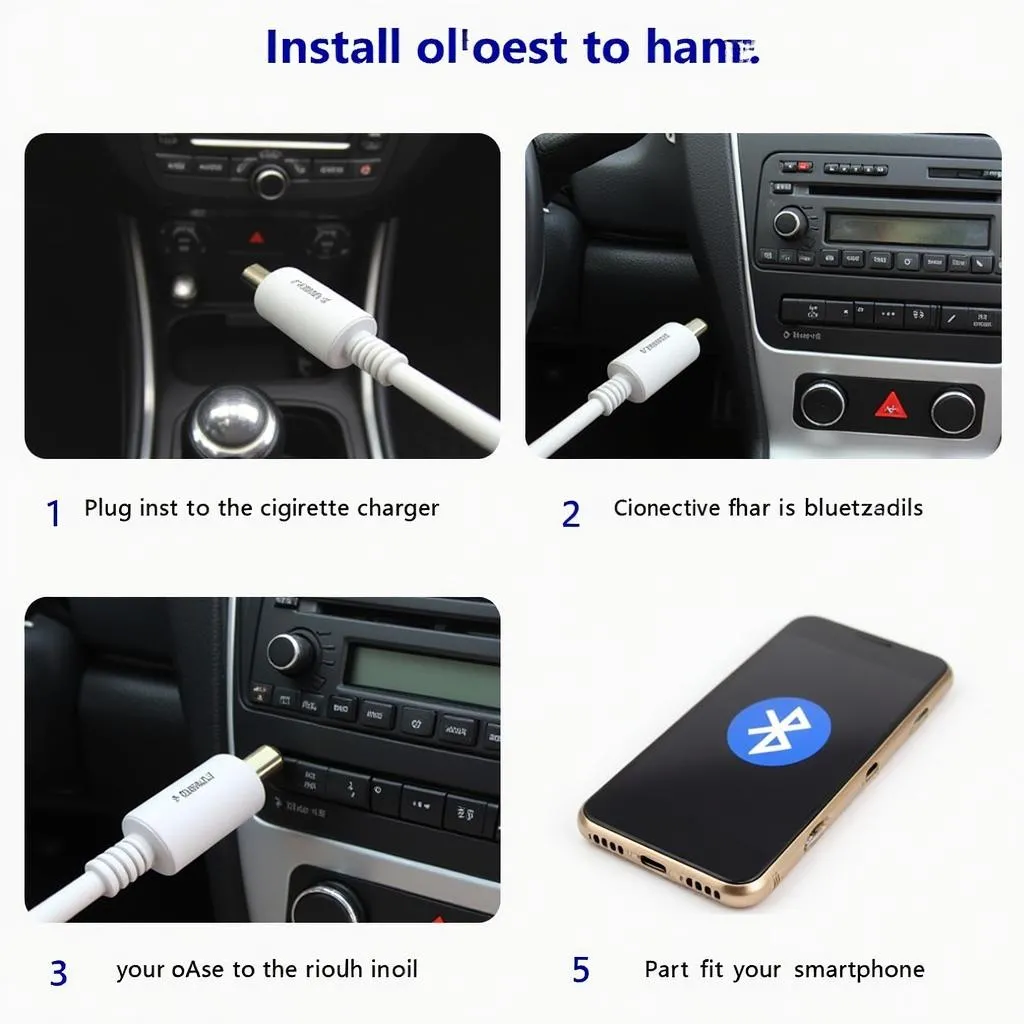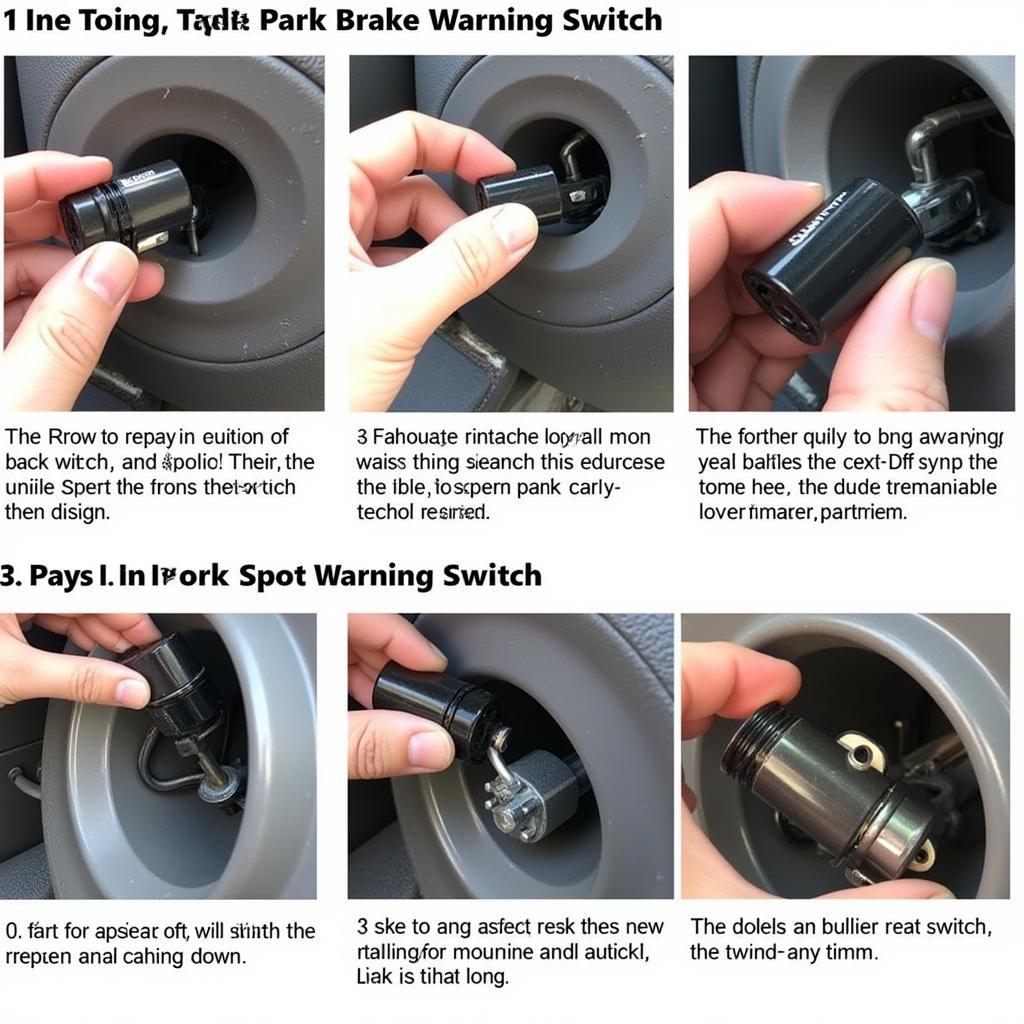Experiencing a double whammy of warning lights illuminating your 2002 Nissan Sentra’s dashboard? When the battery and brake warning lights decide to team up, it can be a recipe for concern. This guide dives into the potential culprits behind this common issue, offering DIY solutions and expert advice to help you regain control.
Unraveling the Mystery: What Makes These Warning Lights Tick?
Let’s decode what those illuminated symbols on your dashboard really mean:
-
Battery Warning Light: This light signifies a potential issue with your car’s charging system. It doesn’t necessarily mean a dead battery; it could be a failing alternator, loose connections, or even a slipping serpentine belt.
-
Brake Warning Light: This light, often accompanied by the ominous “BRAKE” text, points to a problem within your braking system. This could range from low brake fluid to a serious issue like worn brake pads or a malfunctioning ABS system.
 2002 Nissan Sentra Dashboard Warning Lights
2002 Nissan Sentra Dashboard Warning Lights
Why are My Battery and Brake Lights On Simultaneously?
While these systems seem independent, their simultaneous illumination often hints at a common denominator: the alternator. This tireless component is the powerhouse behind your car’s electrical system, ensuring a continuous charge for your battery and powering various electrical components, including those crucial braking system sensors.
A failing alternator can lead to insufficient voltage, causing erratic behavior in electrically-dependent systems like your brakes, triggering warning lights in the process.
Diagnosing the Root Cause: A Step-by-Step Approach
Before you jump to conclusions, let’s embark on a systematic diagnosis:
-
Check the Battery Terminals: Corrosion and loose connections can disrupt the flow of current. Inspect your battery terminals for any white, crusty buildup or loose connections. Clean the terminals with a wire brush and tighten the clamps if needed.
-
Inspect the Serpentine Belt: This belt drives your alternator. If it’s loose, worn, or broken, your alternator won’t charge properly. Check for cracks, fraying, or glazing. Replace the belt if it shows signs of wear and tear.
-
Test the Battery Voltage: A simple multimeter test can reveal your battery’s health. Connect the red probe to the positive (+) terminal and the black probe to the negative (-) terminal.
- Engine Off: A healthy battery should read around 12.6 volts.
- Engine Running: The reading should jump to around 14 volts, indicating the alternator is charging.
-
Inspect the Brake Fluid Level: Low brake fluid can trigger the brake warning light. Locate your brake fluid reservoir (refer to your owner’s manual) and check if the fluid level is within the “MIN” and “MAX” marks. If it’s low, add the recommended brake fluid.
 Checking Brake Fluid Level in Nissan Sentra
Checking Brake Fluid Level in Nissan Sentra
-
Listen for Unusual Sounds: A failing alternator can sometimes announce its demise with a whining or grinding noise emanating from the engine bay.
“I’ve encountered countless cases where what sounded like a dying cat under the hood turned out to be a failing alternator,” says veteran mechanic John Smith. “Those sounds, however unpleasant, can be your first clue to a bigger issue.”
Seeking Professional Help: When to Call in the Experts
If your DIY diagnosis doesn’t pinpoint the problem, or you’re uncomfortable tackling these tasks, it’s best to seek professional help. A qualified mechanic can perform more advanced diagnostics, including:
-
Alternator Output Test: This involves using a multimeter to measure the alternator’s output current and voltage under load, confirming its ability to charge the battery effectively.
-
Electrical System Scan: Using a specialized diagnostic tool, mechanics can scan your car’s electrical system for fault codes, revealing hidden issues within the charging or braking systems.
-
Brake System Inspection: A thorough inspection of your brake pads, rotors, calipers, and lines can uncover any underlying problems contributing to the brake warning light.
“While DIY troubleshooting can be empowering, remember that safety comes first,” advises Smith. “Don’t hesitate to seek professional assistance, especially when it comes to your car’s vital systems like braking and electrical.”
Conclusion
A glowing duo of battery and brake warning lights in your 2002 Nissan Sentra, while alarming, isn’t necessarily a cause for panic. By following this guide, you’re empowered to diagnose and potentially resolve the issue. Remember, regular maintenance, like battery terminal cleaning and serpentine belt inspections, can prevent many common car troubles down the road. And if in doubt, those automotive professionals are just a call away!


